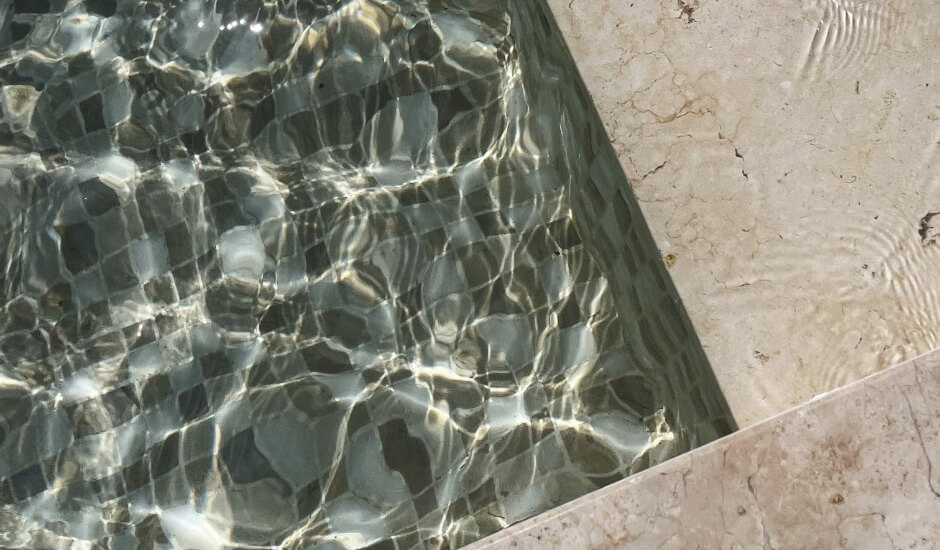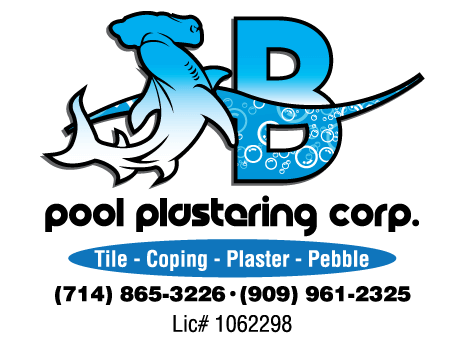
Types of Pool Surfaces—Everything you need to know
Do you want to learn more about types of pool surfaces? If you’re installing a pool in your house, it’s crucial to comprehend the many pool surfaces and finishes available. While some pool surfaces can save money upfront, others can cut maintenance expenses and time in the future.
The function and design of pool finishes, distinct from pool surfaces, might vary. Making the best decision for your lifestyle depends on your ability to weigh the advantages and disadvantages of all your options.
Three Types of Pool Surfaces
The substance that makes up a pool’s walls and floors is known as the surface. There are three different types of pool surfaces available.
Gunite:
Builders spray a concrete, water, and sand mixture onto a rebar framework to create a gunite pool surface. This is the most preferred surfacing choice in the United States. Gunite swimming pools are comparable to concrete, except they are applied in layers using a particular spray gun rather than poured into a wooden structure like concrete.
Pros:
- Highly resilient (can last up to 100 years).
- Total freedom in shape and design.
- Attractive to the eye.
Cons:
- Most costly potential.
- Installs in up to 4 months.
- It needs constant upkeep to keep working.
Concrete
Concrete pools are constructed by pouring concrete over a steel rebar framework, allowing for highly customizable shapes and depths. Concrete is a sturdy and durable foundation that can be finished with various materials for aesthetic enhancement.
Pros:
- Extremely durable and robust.
- Highly customizable in terms of shape, size, and design.
- It can be finished with plaster, tile, pebble, or other decorative materials.
Cons:
- Installation can be time-consuming.
- It is more expensive upfront compared to other types of pools.
- Requires regular maintenance to prevent cracking and leakage.
Pebble:
Pebble surfaces incorporate small stones mixed into cement or plaster, offering a durable and aesthetically pleasing finish. The stones can vary in color, size, and texture, giving the pool a unique and natural look.
Pros:
- Extremely durable; often lasts 15-20 years before needing significant maintenance.
- Offers a unique, customizable appearance with a variety of colors and textures.
- The textured surface is more resistant to algae and stains.
Cons:
- It’s more expensive than some other options like plaster.
- The textured surface can be rough on the feet.
- Installation can be more labor-intensive.
This information should help you determine the best choice of surface for your pool, considering factors like budget, aesthetics, and maintenance preferences.
What about Pool Finishes?— Types of Pool Surfaces
When selecting a pool surface such as gunite, concrete, or pebble, it’s essential also to choose an appropriate finish. Materials like concrete and gunite are porous by nature, requiring a finish to seal the surface effectively. This is critical not only for preventing leaks and enhancing durability but also for achieving your desired aesthetic.
The following are the primary pool finish types:
- Plaster
Since the 1960s, this finishing choice has been available because it is the least expensive. Although a few different hues are available, white is the most common. The average lifespan of plaster is 5-7 years. To avoid stains and damage, you must manage the pool’s pH levels and limit algae growth. Prepare to coat the pool’s surface with acid every three to five years.
- Aggregate
Pool treatments for aggregate come in two forms: exposed and polished. However, all aggregate finishes are often made of plaster, concrete, pebbles, and occasionally glass beads. A well-known brand of aggregate pool finishing is PebbleTec.
The final result is a long-lasting, aesthetically pleasing, low-maintenance pool finish. Aggregate pool finishes offer numerous aesthetic and design options. They are more resistant to chemicals, stains, and algae growth than plaster and can, therefore, last up to 20 years without needing to be refinished.
- Tile
The most expensive and luxurious pool finishing choice is this. Many kinds of tiles are available, including ceramic, porcelain, stone, quartz, and glass, each having unique benefits and aesthetics.
Tile is a strong and long-lasting alternative for pool finishing. Because tile is available in various looks and styles, the aesthetic options are almost endless. To help keep your pool water clear and clean after installation, use a secondary sanitizer.
We Are the Best Pool Construction & Remodeling Company in the Area

Do you still have concerns about choosing a pool surface? Ready to begin constructing your ideal pool? Contact us today and get ready to receive more information.




